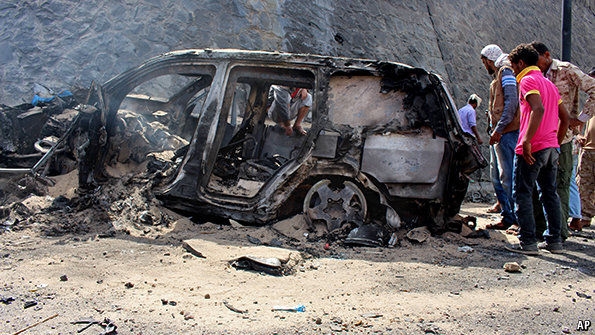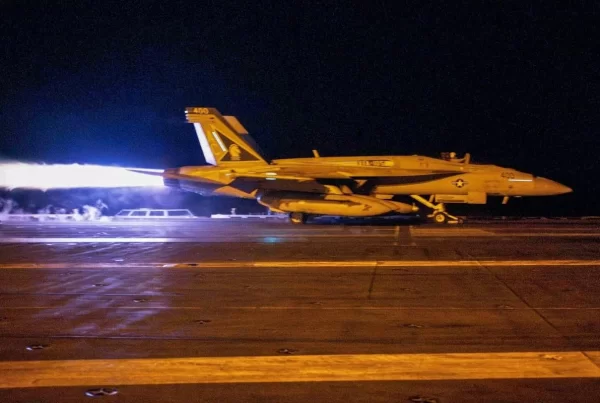IF EVER a war caused pointless death and destruction, it is the one in Yemen. The Houthis, a rebel force, ousted the government from Sana’a, the capital, earlier this year but are nowhere near their aim of ruling the country. The government has only the most tenuous hold over areas it retains or has liberated from the Houthis. A Saudi-led military campaign to reinstate Abd Rabbo Mansour Hadi, the deeply unpopular president, has only added to the carnage.
Amid this, the country has provided fertile turf for various groups of jihadists. On December 6th an offshoot of Islamic State (IS) said it was responsible for the bomb that killed Jaafar Muhammad Saad, the governor of the southern city of Aden. The government recently won back Aden from the Houthis, but its motley crew of allied fighters has failed to secure the place. Officials who hoped to govern from the port city have been too scared to make more than brief visits.
The main group that now claims to hold the IS franchise in Yemen is relatively new, but it has carried out a string of suicide bombings against both the internationally recognised government and the Houthis. It has filled the vacuum left by the decline of Yemen’s longer-established Sunni terrorists, al-Qaeda in the Arabian Peninsula (AQAP).
The most potent remaining franchise of al-Qaeda was dealt a blow by the killing of its leader, Nasir al-Wuhayshi, by an American drone in June. Yet although their commander is no more, the jihadists are far from finished. AQAP has recently seized two southern cities, including Zinjibar, the capital of Abyan governorate, only 50km north-east of Aden.
In a little over nine months of war Yemen has gone from terrible to worse. The death toll is now thought to have passed 6,000 and food, always in short supply, is getting scarcer. Roads, schools, shops and houses have been destroyed in battle or bombed to rubble. Aid workers complain that their warnings fall on deaf ears, and the international coalition is making things worse.
On December 3rd Doctors without Borders, a medical charity, said the Saudis had bombed one of its mobile health clinics in Taiz, Yemen’s third city. In a sign of frustration with the Saudi campaign, Germany’s foreign-intelligence agency criticised the kingdom directly.
All parties are under pressure to go to UN-run peace talks on December 15th. But prospects for peace are dim. Past rounds of these talks have led to nothing. There have been no signs of willingness to offer goodwill measures, such as the Houthis releasing prisoners or the coalition lifting its blockade on the country. The fighting for Taiz continues. “The parties to the war know how to destroy things,” says Farea al-Muslimi of the Carnegie Middle East Centre, a think-tank in Beirut. “But not how to govern.”






